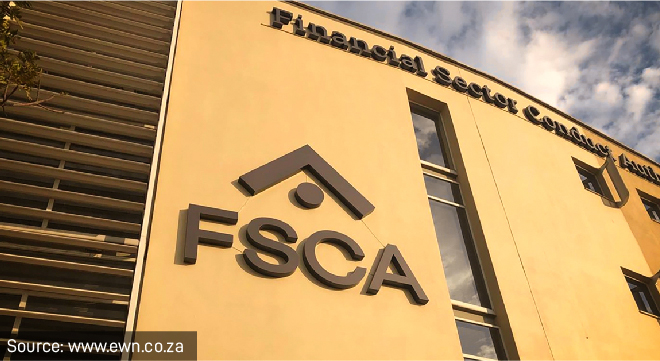Last week, the FSCA informed subscribers to its communications that it has published, on its website, the notices of administrative sanctions that it issued to 11 FSPs for non-compliance with the Financial Intelligence Centre Act (Fica).
An examination of the notices reveals that:
- The sanctions were imposed between November 2019 and June 2020;
- The sanctions included fines, from R10 000 to R420 000;
- The sanctioned FSPs were drawn from different areas of the industry and ranged from small close corporations to a JSE-listed financial services group; and
- None of the sanctions were imposed for money laundering or terrorism financing.
Update: The FSCA has subsequently told Moonstone that it did publish the notices earlier, but they were republished again because of a technical glitch. The FSCA’s “Anti-Money Laundering and Counter-Terrorism” page includes a section with the latest enforcement actions. Go to www.fsca.co.za > Regulatory framework > Anti-Money Laundering and Counter-Terrorism
The FSCA published the notices without redactions – they included the names and contact details of the individuals to whom the notices were emailed.
The notices stated that the FSCA would make its decision and the sanctions imposed public in terms of sub-section 45C(11) of Fica. This sub-section states that unless the Director of the Financial Intelligence Centre (FIC) or a supervisory body is of the opinion that exceptional circumstances justify keeping a decision confidential, the director or a supervisory body must make public the decision and any sanction imposed if:
- An institution or person does not appeal against a decision within the required period; or
- The FIC Appeal Board confirms the decision.
In terms of sub-section 45D(1), appeals must be lodged within 30 days of a receipt of a notice.
Areas of non-compliance
With few exceptions, all the FSPs were sanctioned for non-compliance with sub-section 42(2), which requires accountable institutions to develop, maintain and implement a risk management and compliance programme (RMCP).
Three of the FSPs were found not to have implemented an RMCP. In most cases, however, the contraventions arose because the FSPs were unable to demonstrate to the FSCA that their RMCPs met the requirements of sub-section 42(2) and Guidance Note 7 of October 2017, or they had not applied their RMCPs appropriately when risk-rating certain clients.
Most of the FSPs were found to have contravened section 43, which requires accountable institutions to provide staff with ongoing training on how to comply with Fica and their RMCPs.
The third-most common reason for non-compliance related to section 21, which requires accountable institutions to verify the identity of a client before establishing a business relationship or concluding a transaction.
The other, less-common areas of non-compliance were:
- Failing to keep records of the information obtained to verify a client’s identity and the nature of the business relationship, and the source of the funds that the client is expected to use to conclude transactions (section 22).
- Failing to keep transaction records (section 22A).
- Failing to comply with sub-section 24(3). An accountable institution that appoints a third party to perform the duties imposed on it by sections 22 and 22A must provide the FIC and the relevant supervisory body the third-party’s prescribed particulars.
- Failing to report cash transactions that exceeded the threshold (section 28).



